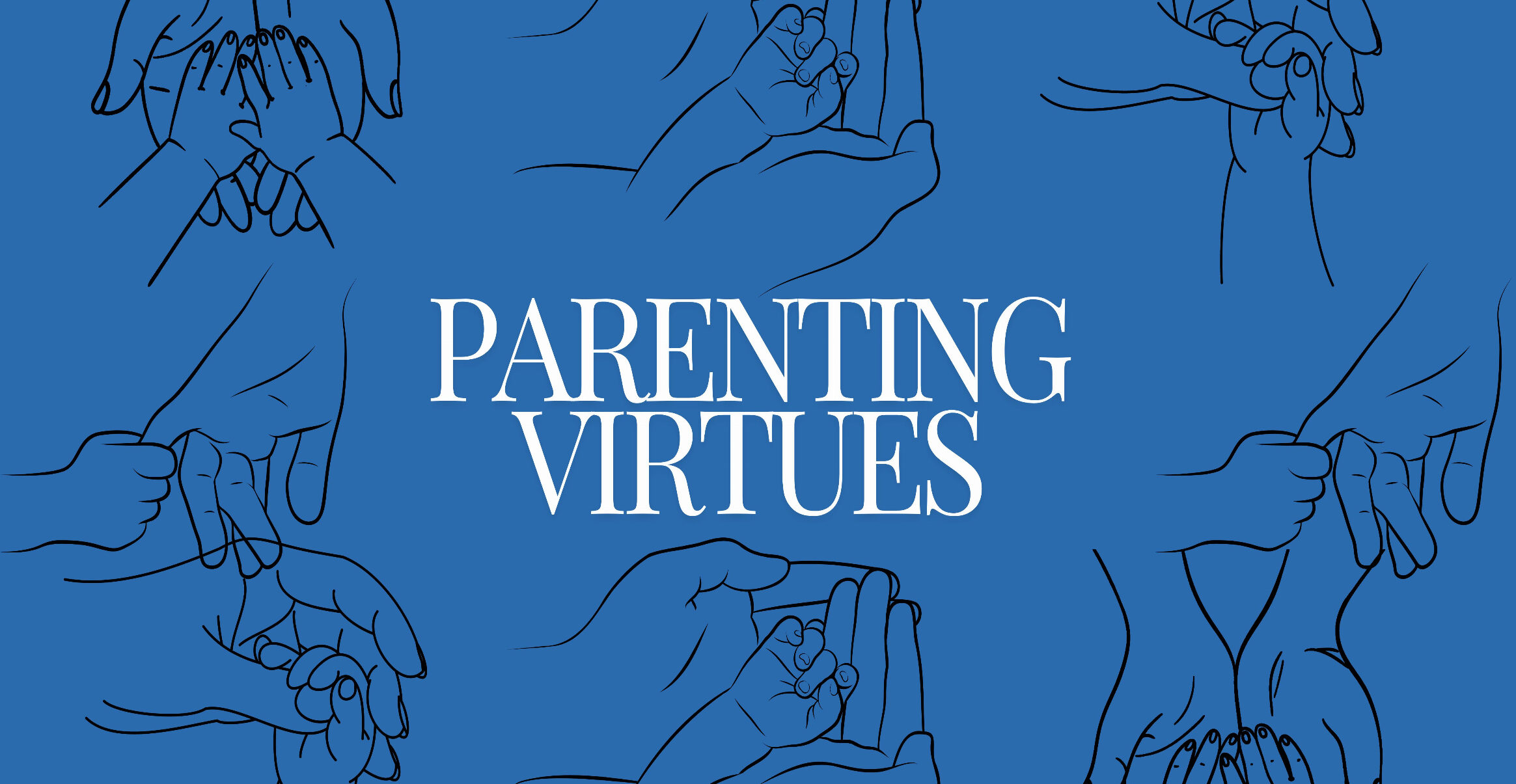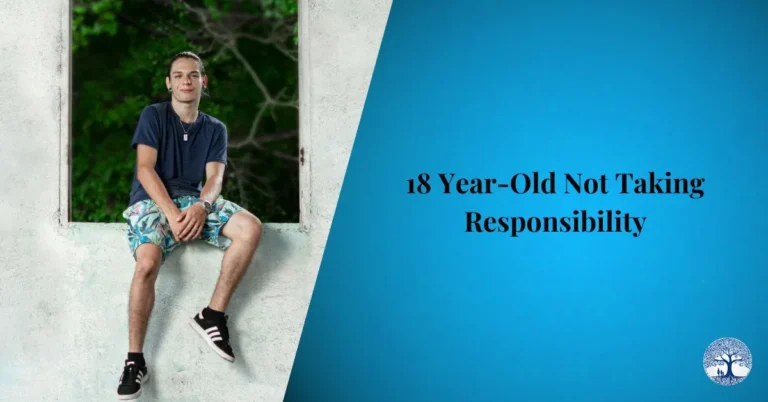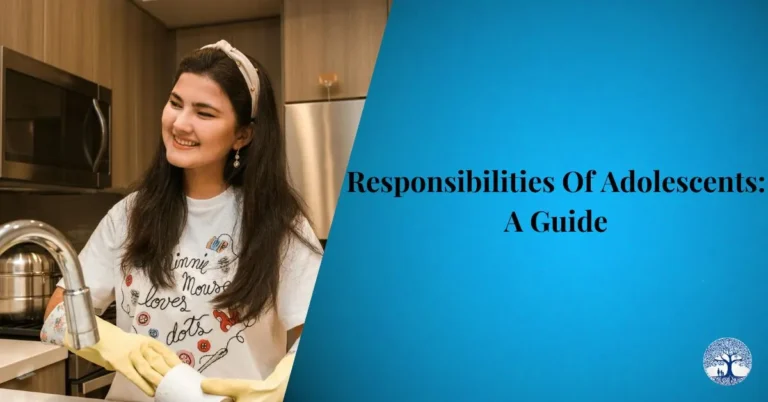Introduction
Raising a responsible teenager in today’s fast-paced, distraction-filled world is no easy feat. As parents, we are often caught between nurturing our child’s independence and guiding them through the responsibilities that come with growing up. The transition from adolescence to adulthood is a critical period where developing a sense of responsibility is not just beneficial but essential for their future success. Responsibility shapes their character, builds resilience, and prepares them to face life’s challenges head-on. In this post, we will explore practical and effective strategies that you can implement to encourage your teenager to embrace responsibility, setting them on a path toward maturity and self-reliance.
Understanding Teenage Responsibility
Defining Responsibility in Teenagers
Responsibility for a teenager encompasses a range of qualities, including accountability, self-discipline, and reliability. At this stage, responsibility means being able to manage tasks independently, honor commitments, and make decisions that consider both immediate and long-term consequences. It involves understanding the importance of their actions, recognizing the impact on themselves and others, and taking ownership of their choices. For teens, this often starts with small, everyday duties—like completing homework on time, helping out at home, or managing their own schedules—gradually building up to more significant responsibilities as they mature.
Importance of Responsibility
Developing a sense of responsibility during adolescence is a critical component of personal growth and future success. When teens learn to be responsible, they are better equipped to handle the demands of adulthood, such as managing their finances, maintaining relationships, and pursuing their career goals. Responsibility fosters independence, builds self-confidence, and encourages a proactive approach to problem-solving. As they grow more responsible, teens gain the skills necessary to navigate the complexities of life, making informed decisions and taking control of their futures.
Challenges Teens Face
Despite the importance of responsibility, many teenagers struggle with embracing it due to various challenges. Peer pressure can often lead them to prioritize fitting in over making responsible choices, while the lure of instant gratification may undermine their ability to plan and work towards long-term goals. Additionally, a lack of motivation, often fueled by the overwhelming nature of adolescence, can make it difficult for teens to take responsibility for their actions. These challenges can hinder their development, making it essential for parents to provide guidance and support as they navigate this critical period of their lives.
Leading by Example
Modeling Responsible Behavior
One of the most powerful ways to encourage responsibility in teenagers is for parents to model responsible behavior themselves. Teens are keen observers, and they learn a great deal from watching how their parents handle their own responsibilities. When parents consistently demonstrate behaviors such as meeting deadlines, managing finances prudently, and keeping promises, they set a strong example for their teens to follow. This kind of modeling shows teenagers what responsibility looks like in real life and underscores the value of being dependable and accountable.
Consistency in Actions
Consistency in a parent’s actions is crucial when teaching responsibility. When parents maintain consistency in their decisions and follow through on rules and expectations, it reinforces the importance of responsibility. Teens are more likely to adopt responsible behaviors when they see that the rules are applied fairly and consistently, rather than arbitrarily. This consistency helps to build a sense of security and trust, making it clear that responsibility is a standard everyone in the family adheres to.
Accountability in the Household
Creating a home environment where accountability is a shared value can significantly influence a teenager’s sense of responsibility. This means holding not only the teenager but everyone in the household, including parents, accountable for their actions. For example, parents can admit to their own mistakes and take responsibility for them, which teaches teens that accountability is a lifelong skill, not just something expected of children. Encouraging open communication about responsibilities, setting clear expectations for everyone, and practicing mutual respect can foster a culture of responsibility that your teen will naturally want to emulate.

Setting Clear Expectations
Communicating Expectations Clearly
Clear communication of expectations is essential when fostering responsibility in teenagers. It’s important to set expectations that are age-appropriate, realistic, and aligned with your teen’s maturity level. When expectations are clearly communicated, it reduces ambiguity and helps your teen understand exactly what is required of them. This clarity allows them to focus on meeting those expectations, knowing what behaviors are acceptable and what responsibilities they are expected to take on. Regular discussions about these expectations also provide an opportunity to adjust them as your teen grows, ensuring that they remain challenging but attainable.
Creating a Responsibility Chart
A responsibility chart or checklist can be an effective tool for helping teens visualize and track their tasks. By outlining specific responsibilities—such as chores, homework, and personal commitments—on a chart, teens can easily see what needs to be done and when. This not only helps them manage their time better but also instills a sense of accomplishment as they check off completed tasks. A responsibility chart serves as a constant reminder of their duties and helps them develop organizational skills that will be valuable throughout their lives.
Setting Consequences and Rewards
Consistency in enforcing consequences for irresponsibility and offering rewards for responsible behavior is key to motivating your teen. When teens know that there are clear, predictable outcomes for their actions—whether positive or negative—they are more likely to take their responsibilities seriously. Consequences should be fair and directly related to the behavior, such as losing privileges if chores are not completed. On the other hand, rewards for responsible behavior, like extra free time or a special treat, can reinforce the positive actions you want to see more of. This balance of consequences and rewards helps teens learn that their choices have real impacts, both in the short and long term.
Encouraging Independence
Gradual Increase in Responsibility
One of the most effective ways to foster independence in teenagers is by gradually increasing their responsibilities. Start with small, manageable tasks that match their current abilities, such as taking care of their personal belongings, managing their homework, or helping with simple household chores. As they demonstrate competence and reliability, gradually introduce more complex responsibilities, like budgeting their allowance or managing their own schedules. This gradual increase helps them build confidence in their abilities and reinforces the idea that independence is earned through responsible behavior. By taking on more significant tasks over time, your teen will develop the skills and self-assurance needed to navigate the responsibilities of adulthood.
Allowing Natural Consequences
Allowing teens to face the natural consequences of their actions is a powerful way to teach responsibility. When parents step back and let their teens experience the results of their decisions—whether positive or negative—they provide an invaluable learning opportunity. For instance, if a teenager forgets to complete a homework assignment, the resulting lower grade can serve as a reminder to be more diligent in the future. These natural consequences help teens understand the direct link between their actions and outcomes, fostering a sense of accountability. It’s important for parents to resist the urge to intervene too quickly, as these experiences are crucial for developing problem-solving skills and resilience.
Encouraging Decision-Making
Encouraging teenagers to make their own decisions, even if it means making mistakes, is essential for their development into responsible adults. Decision-making is a critical life skill, and allowing your teen to practice it within a safe environment helps them learn to weigh options, consider consequences, and take responsibility for their choices. While it can be difficult for parents to watch their teens make less-than-ideal decisions, these experiences are often the most effective teachers. By supporting your teen through the decision-making process—providing guidance but not dictating outcomes—you empower them to become independent thinkers who are capable of handling the complexities of life with confidence and responsibility.
Building Trust
Trust as a Foundation for Responsibility
Trust is the cornerstone of any strong parent-teen relationship, and it plays a vital role in fostering responsibility. When parents trust their teenagers, they give them the freedom to make decisions and manage their own tasks, which in turn encourages teens to act responsibly. Trust creates a safe environment where teens feel valued and respected, motivating them to live up to the expectations set for them. It also reinforces the idea that with trust comes accountability, as teens understand that their actions can either strengthen or weaken this bond.
Ways to Build Trust
Building trust with your teenager requires intentional actions and open communication. One of the most effective ways to build trust is by maintaining honest and transparent communication. Regularly check in with your teen, listen to their concerns, and share your own thoughts in a non-judgmental manner. Respecting their privacy is another key aspect; allow them personal space and refrain from unnecessary intrusions into their private matters, which shows that you trust them to manage their own affairs. Additionally, being supportive in times of both success and failure helps build a foundation of trust. When teens know they can rely on their parents for encouragement rather than criticism, they are more likely to be open and responsible.
Rebuilding Trust After It’s Broken
Rebuilding trust after it’s been broken by irresponsible or deceitful behavior is a challenging but essential process. Start by addressing the issue directly and calmly, discussing what led to the breach of trust and why it was damaging. It’s important to express your feelings without resorting to blame, focusing on how the behavior affected the relationship. Afterward, work with your teen to establish clear steps they can take to rebuild trust, such as demonstrating reliability in smaller tasks before gradually regaining more significant responsibilities. Consistent behavior over time is crucial in the trust-rebuilding process. Patience and understanding from both sides will help mend the relationship, reinforcing the idea that trust, once restored, must be nurtured and maintained through responsible actions.

Involving Your Teen in Family Decisions
Collaborative Decision-Making
Involving your teenager in family decisions is an excellent way to help them feel valued and responsible. When teens are included in discussions about significant matters—such as planning family vacations, setting household rules, or managing finances—they gain a sense of ownership over the outcomes. This collaborative approach not only boosts their self-esteem but also teaches them important life skills like negotiation, compromise, and critical thinking. By actively participating in decision-making, teens learn that their opinions matter, which encourages them to be more responsible in both family matters and their personal lives.
Assigning Family Roles
Assigning specific roles or responsibilities within the family can significantly enhance your teen’s sense of accountability. Whether it’s being in charge of preparing dinner once a week, managing the family calendar, or taking on a leadership role in organizing family events, these tasks help your teen feel like an integral part of the household. By assigning them responsibilities that align with their interests or strengths, you not only build their confidence but also teach them the importance of contributing to the family’s well-being. This involvement fosters a deeper understanding of responsibility and shows them that their actions have a direct impact on the entire family.
Encouraging Participation in Family Meetings
Regular family meetings provide an ideal platform for teenagers to take responsibility for their actions and contribute to important discussions. These meetings can be used to review household routines, address any issues or conflicts, and plan for upcoming events. Encouraging your teen to participate actively in these meetings allows them to voice their opinions, suggest solutions, and be part of the decision-making process. This participation teaches them the value of teamwork, accountability, and open communication. It also gives them a sense of agency in the family dynamic, reinforcing their role as a responsible and trusted member of the household.
Encouraging Goal Setting
Teaching Goal-Setting Skills
Teaching your teenager to set and achieve goals is a powerful way to foster responsibility. Goal-setting helps teens focus their efforts on specific outcomes, whether it’s improving their grades, saving money for something special, or developing a new skill. By breaking down larger goals into manageable steps, you can guide your teen in understanding the process of setting realistic and attainable objectives. This practice not only encourages responsibility but also instills a sense of purpose and direction. As they work towards their goals, teens learn the importance of planning, perseverance, and time management—key components of responsible behavior.
Tracking Progress
Helping your teen track their progress toward their goals is essential for keeping them motivated and accountable. You can encourage them to use various methods, such as maintaining a journal where they regularly document their achievements and challenges. Alternatively, there are numerous apps designed to help teens track goals, set reminders, and monitor their progress. By regularly reviewing their progress, teens can see how far they’ve come and what steps remain, which reinforces the value of consistent effort. Tracking progress also allows for adjustments to be made along the way, teaching teens that flexibility and resilience are important aspects of achieving their goals.
Celebrating Achievements
Celebrating your teen’s achievements, no matter how small, is crucial for reinforcing responsible behavior. Recognizing their efforts and successes boosts their self-esteem and motivates them to continue striving toward their goals. Whether it’s through verbal praise, a small reward, or simply acknowledging their hard work, these celebrations show your teen that their dedication and responsibility are valued. This positive reinforcement helps to build a strong foundation of confidence and encourages them to take on new challenges with a responsible and proactive attitude. By celebrating their accomplishments, you reinforce the idea that responsibility and effort lead to tangible rewards, both in the short term and throughout their lives.

Providing Support and Guidance
Balancing Support and Independence
Providing guidance while allowing your teenager the space to manage their own responsibilities is crucial for their development. It’s important to strike a balance between offering support and avoiding the pitfalls of micromanagement. When parents step in to guide their teens without taking over, it helps them learn how to handle tasks and make decisions independently. This approach fosters a sense of ownership and responsibility, empowering teens to take charge of their own lives. Balancing support with independence ensures that your teen develops the skills needed to navigate challenges while still feeling secure in knowing they have your backing.
Offering Help When Needed
Encouraging independence doesn’t mean abandoning your teen when they face difficulties. It’s essential to offer help and support when they struggle, providing a safety net that helps them overcome obstacles. However, it’s equally important to encourage them to tackle problems on their own whenever possible. This approach helps them develop problem-solving skills and resilience, essential components of responsible behavior. When you offer guidance without taking over, you teach your teen that seeking help is okay, but also that they are capable of finding solutions themselves. This balance helps build their confidence and reinforces their ability to handle responsibilities effectively.
Being Patient and Understanding
Patience and understanding are key as your teenager learns to navigate their responsibilities. Developing responsibility is a process that involves trial and error, and your teen will inevitably face setbacks along the way. It’s important for parents to remain patient and supportive, recognizing that growth takes time. By showing empathy and understanding, you create a positive environment where your teen feels encouraged to learn from their mistakes rather than discouraged. This supportive approach helps them stay motivated and resilient, ultimately fostering a stronger sense of responsibility and self-reliance as they continue to mature.
Conclusion
In summary, fostering responsibility in teenagers involves a multifaceted approach that includes leading by example, setting clear expectations, encouraging independence, involving them in family decisions, and providing consistent support and guidance. By modeling responsible behavior, clearly communicating expectations, and gradually increasing their responsibilities, you can help your teen develop the skills they need to become self-reliant adults. Additionally, involving them in family decisions and celebrating their achievements reinforces their sense of accountability.
As you guide your teenager through this process, it’s essential to remain patient and consistent, understanding that growth takes time. We invite you to share your own experiences or tips for encouraging responsibility in teenagers, and join the conversation on how we can support our teens in their journey towards becoming responsible adults.
Check out our blog Normal vs. Abnormal Teenage Behavior, for more such content!
Frequently Asked Questions (FAQs)
1. How can I start encouraging responsibility in my teenager?
To begin encouraging responsibility in your teenager, start by setting clear and age-appropriate expectations. Involve them in family decisions and gradually increase their responsibilities to help them understand the importance of managing tasks independently. Model responsible behavior yourself, and provide consistent support and guidance. Teaching them goal-setting skills and tracking their progress can also help reinforce responsible behavior. By creating an environment where they feel valued and supported, you set the stage for them to take ownership of their actions.
2. What are some effective ways to model responsible behavior for my teen?
Modeling responsible behavior involves demonstrating reliability and accountability in your own actions. Show your teen how you manage your time, fulfill commitments, and handle challenges. For example, if you are consistent in paying bills on time or sticking to your personal goals, your teen is likely to emulate these behaviors. Openly discussing your own decision-making process and the consequences of your actions can also provide practical examples of responsibility in action.
3. How can I use a responsibility chart to help my teenager?
A responsibility chart is a visual tool that helps teenagers track their tasks and manage their responsibilities. Create a chart that lists daily or weekly tasks, such as chores or school assignments, and allow your teen to mark off completed items. This helps them stay organized and provides a sense of accomplishment as they see their progress. Using apps designed for goal tracking can also be effective. Regularly reviewing the chart together can reinforce their understanding of responsibility and help them manage their tasks more efficiently.
4. What should I do if my teenager struggles with their responsibilities?
If your teenager struggles with their responsibilities, it’s important to offer support without taking over. Start by identifying the root cause of their difficulties, whether it’s a lack of motivation, time management issues, or external pressures. Offer guidance and practical solutions, such as breaking tasks into smaller steps or setting up a routine. Encourage them to seek help and problem-solve independently while providing a supportive environment. Patience and understanding are key, as it takes time for teens to develop effective responsibility skills.
5. How can I rebuild trust if my teenager has been irresponsible?
Rebuilding trust after irresponsible behavior involves open communication and consistent actions. Start by discussing the breach of trust openly, focusing on how the behavior affected the relationship rather than placing blame. Work together to set clear expectations for future behavior and establish steps for regaining trust. Encourage your teen to demonstrate responsible behavior in small, manageable tasks before gradually taking on more significant responsibilities. Consistency in your responses and continued support will help rebuild trust over time, reinforcing the importance of accountability and responsibility.






One Comment